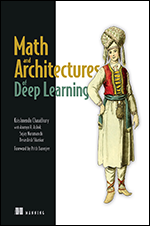Deep Learning on Edge Computing Devices: Design Challenges of Algorithm and Architecture, First edition
- 3h 8m
- Cong Shi, Haijun Liu, Ji Liu, Xichuan Zhou
- Elsevier Science and Technology Books, Inc.
- 2022
Deep Learning on Edge Computing Devices: Design Challenges of Algorithm and Architecture focuses on hardware architecture and embedded deep learning, including neural networks. The title helps researchers maximize the performance of Edge-deep learning models for mobile computing and other applications by presenting neural network algorithms and hardware design optimization approaches for Edge-deep learning. Applications are introduced in each section, and a comprehensive example, smart surveillance cameras, is presented at the end of the book, integrating innovation in both algorithm and hardware architecture. Structured into three parts, the book covers core concepts, theories and algorithms and architecture optimization.This book provides a solution for researchers looking to maximize the performance of deep learning models on Edge-computing devices through algorithm-hardware co-design.
- Focuses on hardware architecture and embedded deep learning, including neural networks
- Brings together neural network algorithm and hardware design optimization approaches to deep learning, alongside real-world applications
- Considers how Edge computing solves privacy, latency and power consumption concerns related to the use of the Cloud
- Describes how to maximize the performance of deep learning on Edge-computing devices
- Presents the latest research on neural network compression coding, deep learning algorithms, chip co-design and intelligent monitoring
About the Author
Xichuan Zhou is Professor and Vice Dean in the School of Microelectronics and Communication Engineering, at Chongqing University, China. He received his PhD from Zhejiang University. His research focuses on embedded neural computing, brain-like sensing, and pervasive computing. He has won professional awards for his work, and has published over 50 papers.
Research Assistant, School of Microelectronics and Communication Engineering, Chongqing University, Chongqing, China. He received his B.Eng, M.Eng and Ph.D degree from University of Electronic Science and Technology of China in 2011, 2014 and 2019, and has been a visiting scholar of Kyoto University from 2018 to 2019. His main research interests include manifold learning, metric learning, deep learning, subspace clustering and sparse representation in computer vision and machine learning, with focuses on human action detection and recognition, face detection and recognition, person detection and re-identification, remote sensing image processing, and medical image analysis.
Cong Shi is a Research Professor in the School of Microelectronics and Communication Engineering, at Chongqing University, China. He received his PhD from Tsinghua University and has held the position of Postdoctoral Fellow with the Schepens Eye Research Institute, at Harvard Medical School. His research focuses on AI-based visual processing system-on-chips, and algorithm hardware co-design techniques. He has published over 30 papers.
Ji Liu is the Head of the AI platform department and the director of the Seattle AI lab for Kwai Inc. He has previously been a faculty member in computer science at the University of Rochester, USA. He received his PhD from the University of Wisconsin-Madison. His research includes machine learning, optimization, computer vision, reinforcement learning, and other areas. He has published over 100 papers.
In this Book
-
Introduction
-
The Basics of Deep Learning
-
Model Design and Compression
-
Mix-Precision Model Encoding and Quantization
-
Model Encoding of Binary Neural Networks
-
Binary Neural Network Computing Architecture
-
Algorithm and Hardware Codesign of Sparse Binary Network On-Chip
-
Hardware Architecture Optimization for Object Tracking
-
SensCamera: A Learning-Based Smart Camera Prototype




